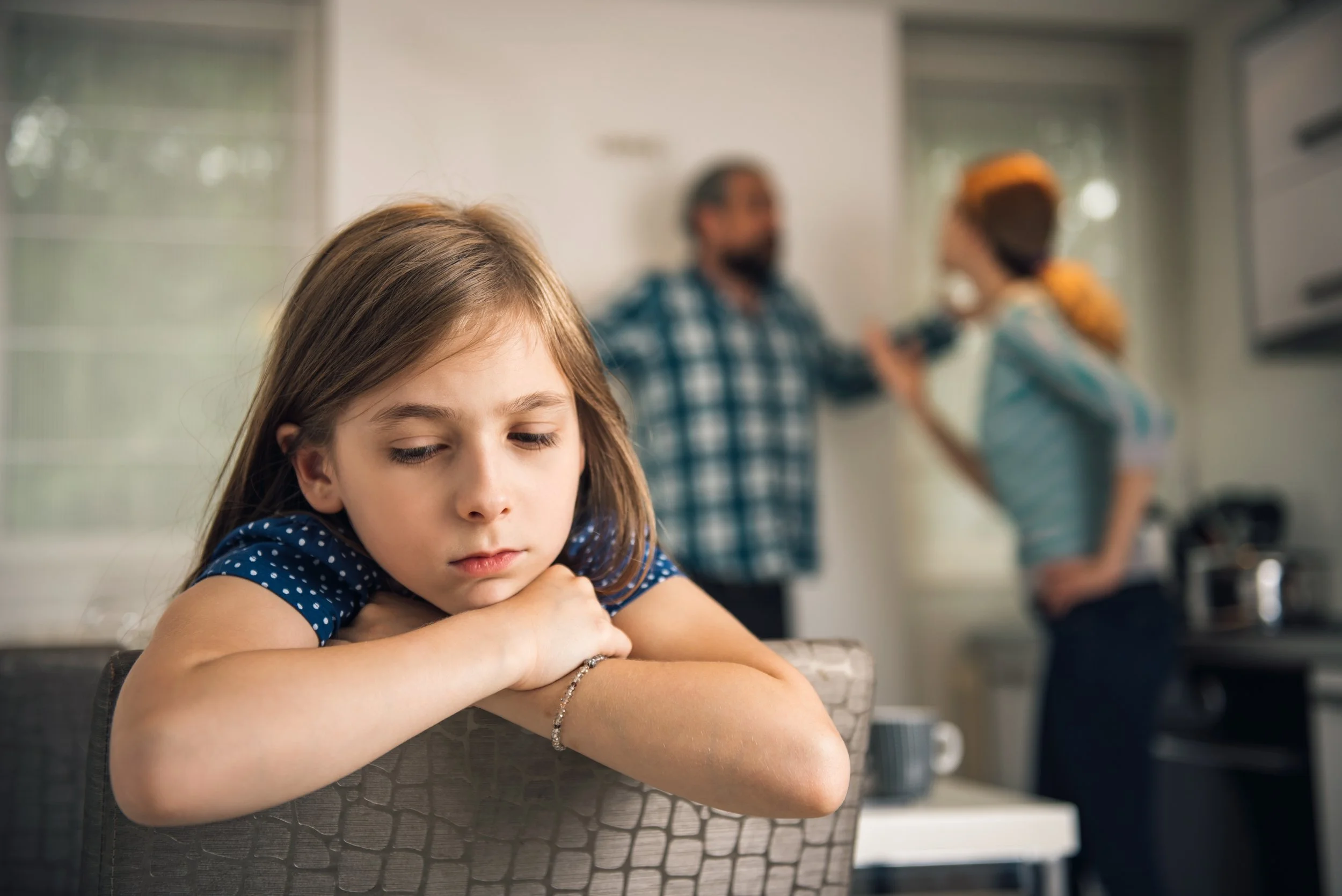
Why You Shouldn’t Speak Negatively to Your Child About Your Ex-Spouse
Divorce or separation is one of the most difficult transitions a family can experience. Emotions run high, pain is real, and sometimes resentment lingers far beyond the separation itself. In these moments, it may feel natural to vent frustrations about your ex-spouse. But when those negative comments are spoken in front of—or directly to—your children, the consequences can be long-lasting and harmful.
Divorce or separation is one of the most difficult transitions a family can experience. Emotions run high, pain is real, and sometimes resentment lingers far beyond the separation itself. In these moments, it may feel natural to vent frustrations about your ex-spouse. But when those negative comments are spoken in front of—or directly to—your children, the consequences can be long-lasting and harmful.
As parents, we want to protect our children. One of the most powerful ways we can do that is by shielding them from harmful narratives about the other parent.
The Impact of Negative Talk on Children
Research consistently shows that children caught between parental conflict often experience increased anxiety, depression, and feelings of divided loyalty. When a child hears one parent criticize the other, they may feel they must choose sides—or worse, feel guilty for continuing to love the “talked about” parent (Amato, 2014).
In fact, studies on high-conflict divorces demonstrate that children exposed to negative talk about one parent are at higher risk for:
Emotional distress
Lower self-esteem
Behavioral issues
Strained parent-child relationships (Johnston et al., 2016)
When we speak negatively about our ex, children may internalize the conflict as part of their own identity: “If Mom says bad things about Dad, and I’m half Dad, does that mean part of me is bad too?”
A Real-Life Scenario
Consider this example:
Eight-year-old Jacob spends weekends with his father. One Sunday evening, when his dad drops him off, his mom asks if Jacob had fun. Jacob excitedly talks about the movie they saw. His mom sighs and says, “Well, I’m glad you had fun, but your father really should be more responsible with money. He never thinks about the future.”
Jacob doesn’t respond, but later that night he feels sad and conflicted. He wonders if it’s wrong to enjoy time with his dad. He feels guilty for loving both parents. Over time, these comments pile up, leaving Jacob confused, anxious, and unsure of how to navigate his relationships.
What to Say Instead
It’s normal to feel upset with your ex, but your child doesn’t need to carry those feelings. Instead of speaking negatively, shift to supportive or neutral phrases. This helps your child feel secure while still acknowledging their reality.
Instead of: “Your mom is always late—she doesn’t care about your time.”
Try: “Sometimes schedules can get tricky, but I’m glad you’re here now.”Instead of: “Your dad never follows through.”
Try: “I know it can feel frustrating when plans change. How are you feeling about it?”Instead of: “She’s selfish and doesn’t think about anyone but herself.”
Try: “We see things differently, but I know she loves you.”Instead of: “Your father ruined everything.”
Try: “The marriage didn’t work out, but we both love you very much.”
These shifts communicate stability and love, helping your child feel safe in both relationships.
Why This Matters
Children do best when they have strong, positive relationships with both parents—even when those parents are no longer together (Kelly & Emery, 2003). By avoiding negative talk, you not only protect your child’s emotional well-being but also model maturity, respect, and resilience.
Remember: your child’s relationship with your ex is separate from your own. Supporting that relationship does not minimize your pain—it magnifies your child’s chance to thrive.
Final Thoughts
Parenting after divorce isn’t easy, but your words hold incredible power. Choosing to speak with kindness, neutrality, or silence about your ex is a profound gift to your child. You are showing them that love can exist beyond conflict, and that they never have to choose between their parents.
If you find yourself struggling with this, therapy can provide a safe space to process your feelings and learn new tools for communication. At Summit Family Therapy, we walk alongside families in transition, helping both parents and children find pathways toward healing and connection.
References
Amato, P. R. (2014). The consequences of divorce for adults and children: An update. Journal of Marriage and Family, 76(3), 460–480.
Johnston, J. R., Roseby, V., & Kuehnle, K. (2016). In the name of the child: A developmental approach to understanding and helping children of conflicted and violent divorce. Springer Publishing Company.
Kelly, J. B., & Emery, R. E. (2003). Children’s adjustment following divorce: Risk and resilience perspectives. Family Relations, 52(4), 352–362.
Why You Should Probably Marry an Optometrist (Part 1)
Have you ever wondered if there was a link between divorce rates and your profession? There are many personality and lifestyle issues to consider when choosing a lifelong companion. Though no one factor will doom your relationship, you may want to consider a nice Optometrist.
Have you ever wondered if there was a link between divorce rates and your profession? There are many personality and lifestyle issues to consider when choosing a lifelong companion. Though no one factor will doom your relationship, you may want to consider a nice Optometrist.
McCoy and Aamodt (2010) compiled the divorce rates for 449 occupations in the United States. They stated 16.96% reported that they “had been in a marital relationship, but were no longer with their spouse [separated or divorced]” (p. 3). This number is the average of each occupation’s average, which may account for the low number. The current employment status of the sample was not given.
The same study suggests that divorce rates were higher for occupations with higher numbers of African Americans and females, while rates were actually lower for occupations with higher numbers of Asian Americans and higher average incomes.
The top five highest divorce/separation rates by occupation were the following:
“Dancers and choreographers” at 43.05%,
“Bartenders” at 38.43%,
“Massage therapists” at 38.22%,
“Gaming cage workers” at 34.66%, and
“Extruding and forming machine setters, operators, and tenders, synthetic and glass fibers” at 32.74%.
The five lowest divorced/separated rates reported by occupation are as follows:
“Media and communication equipment workers, all other” at less than 1%,
“Agricultural engineers” at 1.78%,
“Optometrists” at 4.01%,
“Transit and railroad police” at 5.26%,
“Clergy” at 5.61%.
Are divorce rates worse for marriage therapists or counselors? There was not a specific occupation listed as Marriage and Family Therapist in the same study, however, there were multiple occupations in which a Marriage and Family Therapist may fall. McCoy and Aamodt listed the occupation “Therapists, all other” as having a divorce/separation rate of 24.20%, “Sociologists” as 23.53%, “Social workers” as 23.16%, “Counselors” as 22.49%, “Miscellaneous social scientists and workers” as 19.65%, and “Psychologists” as 19.30%. Each one of these categories had a divorce/separation rate well above the national average for all occupations of 16.96%.
The specific goal of that study was to further investigate the divorce rates of police officers as compared to other occupations. The researchers did not speculate as to why the divorce/separation rates of those in the field of psychotherapy might be so much higher.
To all my Marriage and Family Therapist colleagues, why do you think our divorce rate is not better when compared to other professions? Should we not all be marriage rockstars?
Part 2 is coming soon!
References
McCoy, S. P., & Aamodt, M. G. (2010). A comparison of law enforcement divorce rates with those of other occupations. Journal of Police and Criminal Psychology, 25, 1-16.



